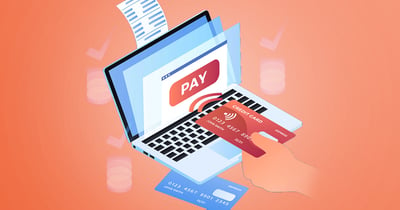Running a business credit check to make sure that a customer or supplier you plan to work with is trustworthy is an excellent way to mitigate risk.
Business credit checks are a crucial and entirely standard part of doing business and provide you with vital information and insight that can help you make important business decisions.
As we’ve mentioned before, small and medium businesses (SMBs) are put at significant risk if their customers don’t make payment as they work on thinner margins and don’t have the financial reserves of larger companies.
As it stands, SMBs across the UK are owed around £51.5 billion in unpaid invoices and the lack of cash flow is one of the more common reasons for a smaller business going insolvent.
To help protect you and your business from the threat of customers with poor payment behaviour or patchy credit histories here is our guide to how to credit check a company.
Step one: Obtain a credit report from a reputable credit bureau
The first step in credit checking a company is to obtain a credit report.
Business credit reports are similar to a personal credit report in so much as they provide you with a credit score and credit history, as well as the credit bureau’s assessment of that company’s creditworthiness.
There are a number of credit bureaus that you can commission such a report from, including Dun & Bradstreet, Coface Central Europe, Creditsafe, CRIF Bürgel, Experian, and Creditreform.
Each of these credit bureaus uses slightly different methods of weighting and assessing a company’s creditworthiness and there will be some differences in the report you get depending on who you commission it from.
However, the basic format will normally be a credit score and a rundown of the financial history of the company that highlights any potential red flags.
Credit reports can be purchased on a one-off basis, however, many companies offer subscriptions services that allow you to make a certain number of credit checks across the year.
Having access to multiple credit reports can be useful when it comes to onboarding new customers, credit monitoring existing customers, and setting credit limits.
While credit reports are an important part of credit checking your customers and suppliers, they aren’t the only steps you can take.
Step two: Do your research
Outside of credit checks, there are other avenues of reporting you can use to check a company's payment behaviours.
One of these avenues is the revised Prompt Payment Code (PPC).
Currently, the PCC has around 3000 larger companies as signatories who have all pledged to
pay any company with less than 50 employees within 60-days of receiving an invoice.
Those companies that have signed up to the prompt payment code can also be removed from it for not sticking to their pledges and you can find a list of those companies that have been suspended here.
Additionally, as of 2017, the UK government instituted a reporting system that required any ‘large’ company to report its payment history at least twice a year.
A business is defined as large if it fulfils two of the following stipulations:
- £36 million in turnover
- £18 million on its balance sheet
- 250 employees
These additional sources of information aren’t as comprehensive as commissioning a business credit check, but they are both free and another avenue of insight into a potential customer’s payment behaviour.
Step three: Contact other suppliers
Word of mouth is normally an excellent way to understand a company’s payment behaviour so reaching out to other suppliers, especially ones that you already have a relationship with, is an excellent way to perform an informal credit check on a company.
Talking to suppliers that have direct experience of how fast a company pays its invoices and how it treats its suppliers can be invaluable information.
When onboarding a new customer you can also ask for supplier references.
Most companies will be happy to supply the contact details of other suppliers with whom they have a good working relationship.
If they don’t want to provide that kind of reference, that can act as a red flag all on its own.
Step four: Adopt the Pro-forma approach
Instead of instantly entering into a long term contract or offering new customers credit right from the start, you could put in place a ‘bedding in’ period during which the customer has to hit certain payment targets before being offered credit.
Essentially, the pro-forma approach means you ask your customer to make payment in advance for goods and services rendered.
Asking for upfront payment means minimising the risk to your business as you won’t be out of pocket if the payment never arrives.
It can also help to build trust between you and your customer by demonstrating that they can and will pay in full and on time.
The pro-forma approach can also be a great way to build a working relationship with a company that has some red flags in its credit history or has demonstrated some less than satisfactory payment behaviour.
Everyone makes at least one mistake in their business career and poor previous payment behaviour isn’t any more of an indication of their behaviour going forward than a good credit report is a guarantee that payment will be made on time.
Offering a company the opportunity to pay upfront for a set number of orders before moving back to more traditional payment terms is a good way to give a customer the chance to prove their trustworthiness.




